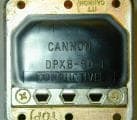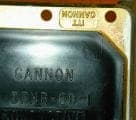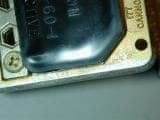
-----
Yellow chromate coating comes off in our hot chemical rinse
2007
Hi Folks,
We are dealing with Yellow Chromated Cd/Zinc electroplate on Aluminum connectors. We solder parts onto a printed circuit board (PCB) through a heat process. After soldering the parts to the PCB, a hot
(65 degree C) chemical (20% Kyzen chemical) rinse is done to CLEAN the assembled product. The problem - Yellow chromate comes off after the rinsing. What surprises us is - Not all batches of connectors are affected. Also, small part of the whole yellow chromated surface only is affected.
|
|
|
|
1) What would be a accept/reject criteria as my customer says its a reject condition whereas the supplier of connector says its OK. Any industry spec that governs accept reject criteria?
2) Is yellow chromate coating supposed to be able to survive temperature and chemical cleaning?
Thanks for your inputs,
Buyer - Kulim, Kedah, Malaysia
If we ignore any legal requirements that may apply in a contract dispute, then: Regardless of your feelings, or the connector supplier's opinion, or industry standards, the customer decides what is satisfactory in an ongoing supply situation -- and that's the end of it. So you must solve the problem to his satisfaction.
Conventional wisdom is that chromate is good to 140 °F (60 °F), so I'd reduce the cleaning temperature to that and investigate a different cleaner if necessary. These parts are probably trivalent chromated these days, or soon will be, and unfortunately that is not yet really a "generic" process. There are several approaches and these conversion coatings, although all called trivalent chromate, will be quite different from each other depending on the process supllier and the plating shop selected -- you can't mix them unless and until you prove that you can. So see if that bears any relationship to why some stand up and some don't. Good luck.

Ted Mooney, P.E.
Striving to live Aloha
finishing.com - Pine Beach, New Jersey
Ted is available for instant help
or longer-term assistance.
2007
Q, A, or Comment on THIS thread -or- Start a NEW Thread


